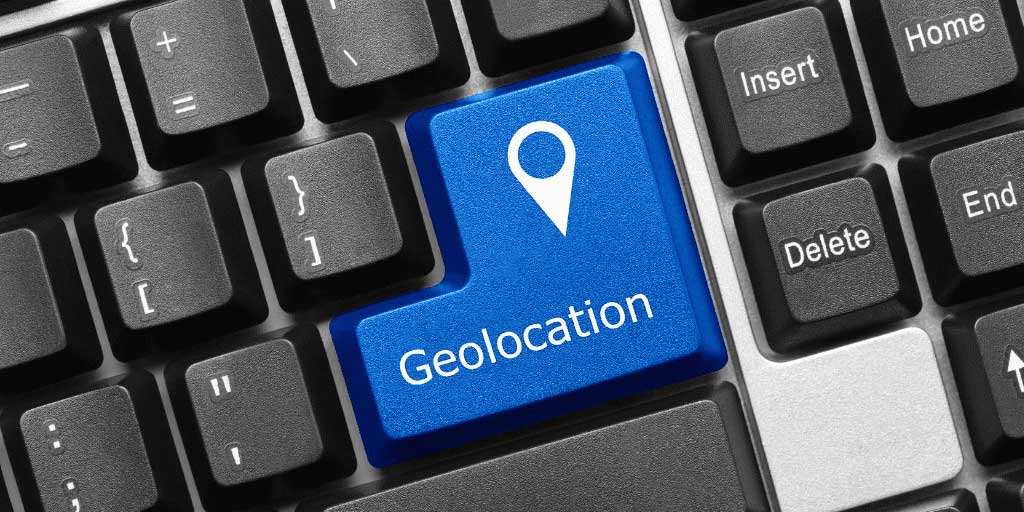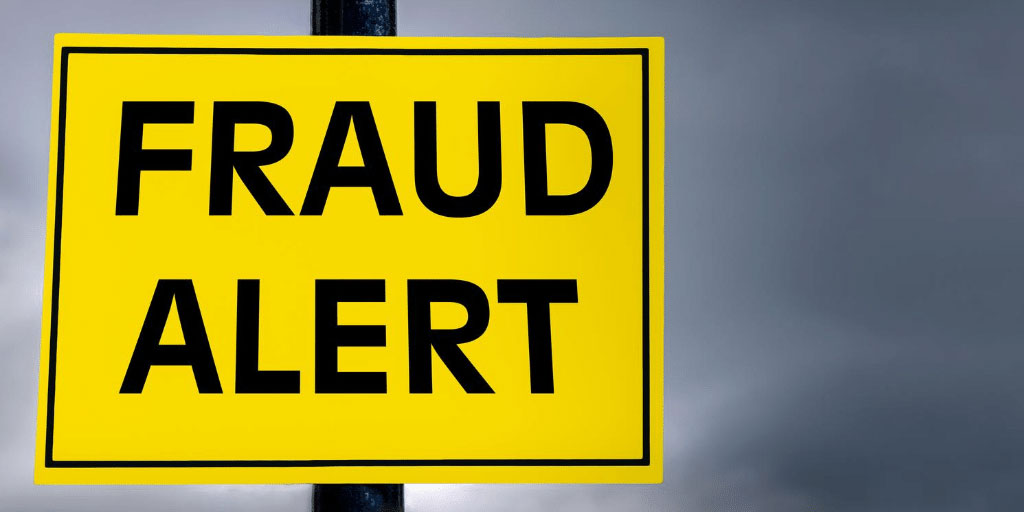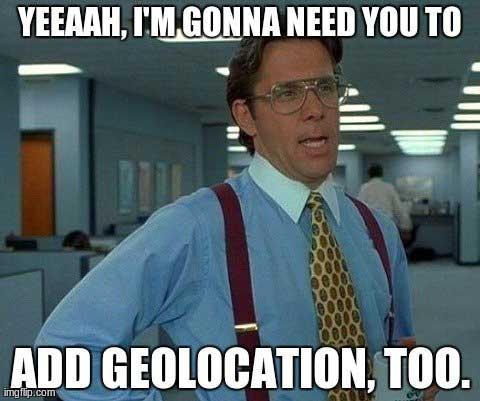What does it mean to be geolocated?
Have you ever wondered why Netflix thinks you live in a different state or why an app wants you to enable your location? It all has to do with geolocation data.
Your IP address does not show anyone your identity or address, but it can give others a general idea of where you are located. In some cases, your general location can be identified within a few miles of your actual address. Of course, it takes a trained computer wiz to figure out how to perform geo location.
Geolocation software is responsible for this ability to locate someone. It first hones in on your country, then your region, city, and zip code. But how exactly does this complex software work? And what might cause it to not work? Let’s find out.
What is geolocation?

So, what is geolocation data?
To keep this definition simple, geolocation is the geographical location (both longitudinal and latitudinal) of an Internet-connect device, such as a cell phone or tablet. This does not mean it is directly connected to your location; instead, it follows the location of the device.
Let’s consider an example of this: You take your dog to the park and lock your phone in your car. You will not be geo located, but your phone will gather geolocated data based on where it is inside of your vehicle.
Of course, if you decide to wear your new smart watch, your geolocation will be tracked because you are wearing one of the many geolocation devices that are hot on the market right now.
An individual or business can device to pay for geolocation services via subscription. Naturally, there are some free website geolocation services available if you know where to look for them. However, the ones you can pay for tend to be the most accurate at determining geolocation. Those can hone in on zip codes better, thereby giving more accurate data to databases.
These geolocation services have access to a lot of databases that can find you based on your IP address. The most prominent geolocation sources is Regional Internet Registries. These are huge organizations that manage and send out IP address info in specific regions of the world. Geolocation services will utilizes other sources in order to zero in on your location. They will dig around, mining for data as they try to zoom in on their target area – your very own neighborhood.
Think of it like this: You go to a website to find out election results in your area. You type in your zip code. Because you made this request online in real time, this data gets linked to your Internet Protocol address.
Of course, there are some Internet Service Providers (ISPs) that give geolocation data to databases. These services can use statistical tools to analyze the data sent in by us and the services that we use online. Why do they do this? Well, to put it simply, these services are gathering data from geolocation devices in order to provide better services to their subscribers.
Is it dangerous to be geolocated?

You might be thinking that this sounds really predatory, and you would be within your right to think so. But just know that geolocation services were not designed to be intrusive. Being geolocated is supposed to be helpful for service providers of different types (such as Netflix or Facebook). In fact, a number of different businesses rely on geolocation in order to protect clients. Take, for examples, banks and how they use geolocation in order to detect potential money laundering and ‘phishing’ scams played out on their clients.
Companies also utilize geolocation in order to detect online fraud. Let’s say you order a $300 television set. While the order is being processed, the company compares your billing address with the geolocation of where the order came from and the shipping address. If it is coming from your home in Detroit, Michigan, then the order will appear legit to the company. But if it is coming from a geolocation in Brazil, the company might flag the order and attempt to contact you to verify the purchase.
Law enforcement agencies can also use geolocation information to track financial transactions made online in suspected criminal cases. National and international investigation agencies access geolocation in attempts to track trading with banned nations or even suspected terrorist groups.
How does geolocation work (or not work)?
Geolocation is not pin-point accurate, but it can usually zoom in to somewhere as close as the next town over from you. Geo location is based on three different methods of collecting data. This means you will not be directly geolocated right inside of your own home, but the software will come pretty close.
It is time we take a deeper look at these three types of location and how they work or, in some cases, do not work.
Types of Geolocation

- Device-Based Data Collection Most of us carry devices that collect our data and have us geolocated without us even thinking about it as we go about our days. That cell phone in your pocket? It has geolocation. So does your Apple watch and that tablet of yours. Any mobile device that can be connected to a network can be geolocated. And most of these devices are fairly accurate in terms of providing your location.
Think about how you ask Alexa or Siri for directions to the closest gas station or grocery store. You expect to get directions to something close by, right? This type of collection depends upon cellular networks and GPS. The more crowded a location is with people using these devices, the more accurately geolocation can be done.
Rural places have less accuracy because there are fewer users. Still, the margin for error is relatively small. If you have a network signal on your mobile device and a GPS chip inserted, these services can access your geolocation. Again, they can really only access your general geolocation, and this is done via GPS-tower-device triangulation. In order to prevent privacy issues, users are asked to allow geolocation, and websites have to ask for geolocation. - Server-Based Data Collection Another means for collecting geolocated data is server-based collection of data. This is connected to your device’s Internet Protocol address via Ethernet or WiFi connection. These Internet Protocol addresses are kept in a database where these Internet Protocol addresses have associated locations listed with them. This is the result of years of data mining. This info gets sold by third party service organizations. In other words, accuracy hinges on how good the servicer’s data happens to be.
Data integrity comes under suspicion when the data’s value is based upon accuracy but the data’s source is based on availability.
Take each of the three credit bureaus (EquiFax, TransUnion, and Experian) into mind. Each one receives its data from sources like public records and creditors’ database info. Each one has its own set of criteria for this data, including how long before they need to refresh data and how long ago they should look. Also, each credit bureau utilizes its own database in order to store this data.
It seems pretty unlikely that each of these three credit bureaus will have the exact same information since they access and utilize such a vast cluster of information for geolocation. This makes it hard to be precisely geolocated.
Internet Protocol-based location storage bases work the same way, but there are infinitely more of them. Still, these providers have their own set of guidelines for the data mining process. User-entered inquiry is one of the more popular methods that service providers use to gather data. This is done by means as simple as asking user to enter their addresses into a form. To state it more simply, this is all information volunteered by you, the user.
This information becomes as accurate as possible after getting analyzed against supporting data (or responses from similar locations). It also gets run against location algorithms. In summation, this allows the information to become as accurate as possible.
What does this actually mean for you though? It means that a database is making a guess if there is not enough information entered or if there is too much incorrect information made available. Internet Protocol geolocation has accuracy that is based on how quickly third party servicers acquire the data and how much data and supporting data are available for a location. This is why some geolocation services might say that you are located in Manhattan when you are actually in New Brunswick.
In the United States, geolocated info is about 90 percent accurate – and that is just about as good as it gets. People living in urban areas of the United States are some of the most easily geolocated users. Of course, at the city level, the percentage declines (to about 50 to 70 percent), and it goes down more the further out you are from a city. The broader the search area, the more accurate geolocated information will be. This is why geolocated info is best utilized for categories of broader location detection.
All in all, privacy is not a huge concern if accuracy is at 50 percent or less. And this is precisely why websites do not have to ask for your permission to gain your location. - Combined Data Collection The two aforementioned methods of collecting data sound kind of convoluted, right? There is a third option when it comes to geolocated info, and that is actually combining those collection methods.
What are the advantages of using this combined method for gaining geolocated info? Websites need their users to give consent when using device-based geolocation, which is the best method for gathering data within a larger city setting. The best method for gathering data from suburban and especially rural areas is server-based detection, which also happens to be the less invasive of the two methods. This method is able to return info that has been bypassed if your Internet Protocol address gets routed through a VPN or another proxy server.
When this is the case, the Internet Protocol address gets mapped to a location commensurate with the server’s location instead of that of the visitor. Sometimes, a website will mix these two methods since each one is prone to failure in different ways. Why? To a website, a smattering of data is better than no data at all. That’s why this combined method is utilized as an alternative plan.
Why is geolocation helpful?

Geolocated information is useful for gathering certain types of info, especially urban data. Researchers can combine data profiles as well as geolocated info in order to understand issues relative to city dwellers, such as urban mobility.
Of course, this type of research is not the only purpose for geolocated info mining. Geolocated information serves a multitude of purposes. The police and government can utilize it for everything from ankle monitors to unmanned aerial vehicles. This might seem a bit more nefarious than you might like, and it certainly raises some doubts as well as complications.
There are some clear advantages to the use of geolocated services though. Ever play Pokemon Go? Ever wanted to go geocaching? They both rely on geolocation. Video games and apps like this can take reality and augment it for our entertainment. So not all geolocated services are harmful.
Geolocated services do more than just entertain us. They allow us to view location history, plot our driving courses, find cool trails to walk on, check into public locations, access the local weather reports, tag our images on social media (thereby letting our followers and followers of the location know where we were having such a good time at), and to find local coffee shops. There are a lot of places we might never find if we did not have geolocated services on our devices.
Our lives are already largely geolocated due to our dependence on mobile devices and Internet connections. Our lives are splayed all across social media. While this has some drawbacks, it also has some positives. This is a way for businesses to attract more customers. When you tag or provide a recommendation for them, you help reel in potential new customers (and, therefore, more revenue) for them. If you are one of those business owners, you reap some benefits of geolocated information.
A delivery grocery chain could use geolocated information to expand into new regions bordering a city it already serves. A website user could quickly find out where the closest hospital emergency room is located. These are only a few examples of the numerous benefits geolocated info has for businesses and individuals.
Geolocation might be questionable in the hands of certain agencies, to be sure. However, it also has a lot of benefits. Geolocation is a service that businesses can utilize to direct clients to them, and it can feed into our entertainment as well as our daily location-based needs.

